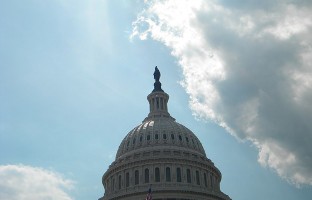In the meantime: Christians in public life
Several years ago I met in Washington, D.C., with a group of about two dozen young Christian professionals who worked on various congressional staffs and in lobby groups, federal agencies and think tanks. I found them to be a very thoughtful group, intensely interested in integrating their basic evangelical convictions with the day-to-day pursuit of their work assignments.
As these young evangelicals talked about the theological issues that most concerned them in their work in the public arena, one of the dominant questions that occupied their minds was the degree to which we can expect success in our efforts to promote public righteousness during this time when we still await the return of Christ. In struggling with this issue they were clearly attempting to find an alternative to two options that evangelicals often have seen themselves as having to choose between. Either we try as much as possible to stay out of the cultural mainstream, standing over against it as we wait for the final judgment, or we attempt to take over the culture.
We can see both options at work during the past century. The "fundamentalist-modernist" controversy of the first few decades of the 20th century led religious conservatives to a strong sense of alienation from the Protestant mainline as well as from the dominant patterns of the larger culture.





